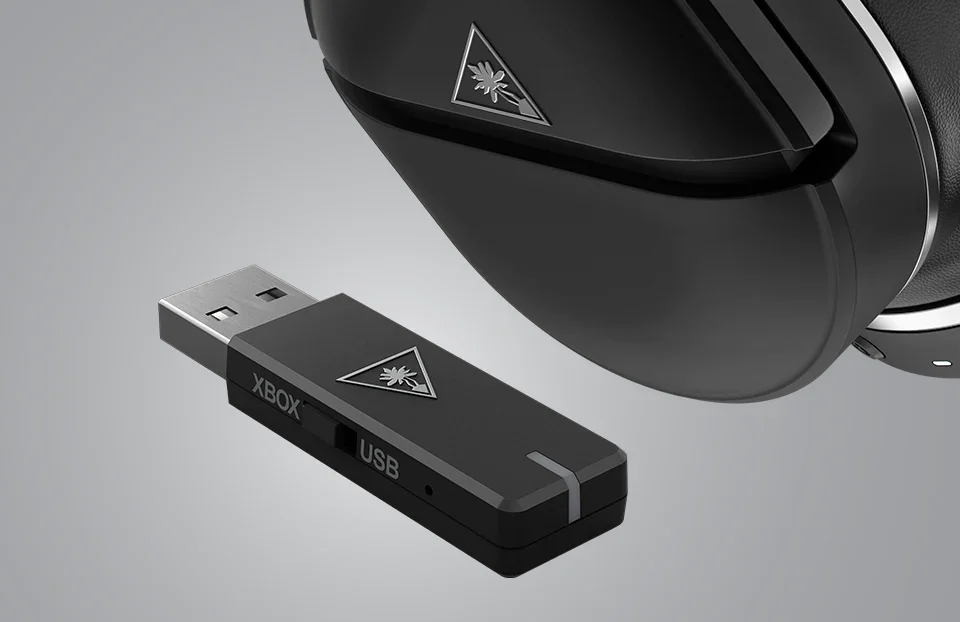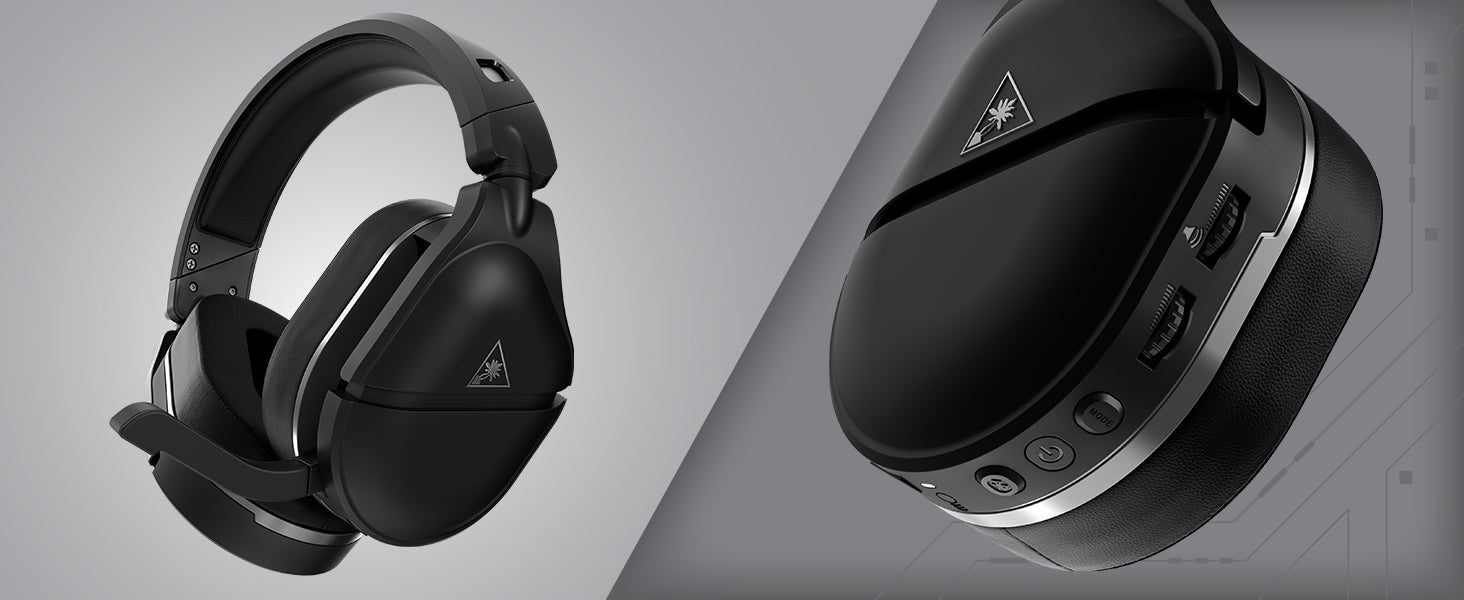In terms of its core feature set, this new Max model is largely similar to the original Stealth 700 Gen 2. It builds on several years and other models of Turtle Beach headset, and as a result it’s pretty damn sharp in all the metrics that matter. It’s comfortable and can be worn for hours, for instance. It feels about as sturdy as a lightweight, wireless headset can be, and seems built to withstand the standard-issue wear and tear that’ll come from putting it on, hurriedly ripping it off, and tossing it to one side of the sofa - though I obviously wouldn’t exactly want to sit on it. I’m a big fan in particular of the materials used for the headset and of its design, which I feel does a pretty good job of bridging ‘gamer’ aesthetics, but without over-the-top RGB lighting and a shouty, edgy aesthetic that’d make this something you wouldn’t want to wear out in public. That’s important, too - this headset has both console and bluetooth capabilities, which means you can use it for gaming, but also as a headset while you’re out and about, for music, taking calls, or portable gaming on a phone or other device. The biggest change in this new ‘Max’ variation is actually to the headset’s battery life, with Turtle Beach claiming that the set can last for over 40 hours. A couple of tests in VG247’s highly unscientific lab do reveal this figure to be accurate - putting it a little way below some other general wireless headsets, but towards the top-end of gaming-specific sets. Even if you do run out of charge, it’s got quick charging, meaning plugging it in via USB-C for ten or fifteen minutes will get you anywhere up to seven or eight hours’ of action. Convenience is the name of the game, really. The battery life is convenient. So too is the connectivity. There’s broad compatibility here, with the headset’s full suite of features compatible with all Xbox One and Xbox Series consoles, PS4, PS5, Switch, phones, PCs, including the Steam Deck. Connecting comes in one of two forms - bluetooth, or a USB dongle that connects the headset over a 2.4GHz wireless signal. Let’s talk dongle first. I tested this on both Xbox (which is what the headset I tested is primarily marketed as being for), PS5, and PC, and each time it connected quickly and painlessly to the device. This should also theoretically work on a docked Switch, or even on Steam Deck with a USB adapter. The dongle has a specific ‘Xbox’ mode, which unlocks additional benefits on that platform, but it works elsewhere, too - just flick the switch on the dongle to ‘USB’. However, the other method is just as viable: Bluetooth. This is compatible with all of the above too, though you might get more features on certain devices with the dongle. One useful little feature is the ability to have both Bluetooth and Dongle connections at once - so you could pair your phone and take calls without interrupting your game audio, with the volume carefully leveled between the two audio sources. It also allows you to stand up, leave your gaming session, and walk out of the door with your headset still going to listen to music or a podcast on your phone. This is a niche feature, but one I really appreciate. All of this combines with that hefty battery life and other smart design changes, such as a better-padded headband, to create an overall much better headset. My biggest negative, in fact, remains the available software on PC and mobile - which is good on paper, but just a little bit rubbish in practice. If Turtle Beach wants to offer extra software to power up its headsets, it needs to be good, reliable, and broadly compatible. Right now, it isn’t. Thankfully, the headset works just fine without. I found the headset decent at blocking out the noises of the world, though when I had it turned up loud I did get a noise leakage complaint from my partner - so maybe don’t turn these up too loud on the train, and if not disturbing others when it’s loud is a priority, keep that in mind. Sound quality is king, of course. Coming from Turtle Beach, you know what to expect: it’s good. One of this company’s strengths is punching above its price class in terms of sound quality - but this headset is on the expensive side, and so has less of that. At $200/£180 it’s feature rich, however, and really has a premium quality feel that is difficult to come by in the gaming space. That price puts it around $50 more than its non-max predecessor - but a slew of smaller tweaks and upgrades, including the expanded battery, are worth that punt. None of this is to say the sound quality is bad, though - it’s worth the cash. It has 7.1 surround sound, is compatible with Dolby Atmos, and also works with PS5’s 3D audio feature. Its built-in microphone is decent enough for online play, though you’re unlikely to want to podcast with it - you should get a dedicated mic for that. I adore that the mic mutes itself when you flick it up, out of your sight - this is a clever alternative to a physical mute button. The price feels a little high, but I actually think this might be my favorite of all of the Turtle Beach headsets I’ve reviewed over the years. It’s a real quality piece of gear - so long as you’ve got the budget. It’s an easy recommendation and addition to our list of the Best Gaming Headsets. Tested on Xbox Series X, Series S, PC (Windows 10), Mobile (Google Pixel 6), Nintendo Switch, and PS5. A headset was provided by the manufacturer for test.

